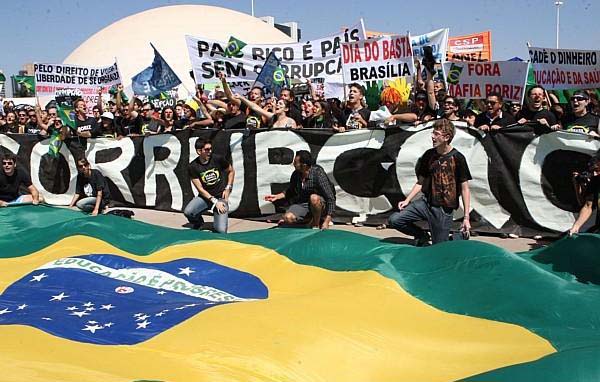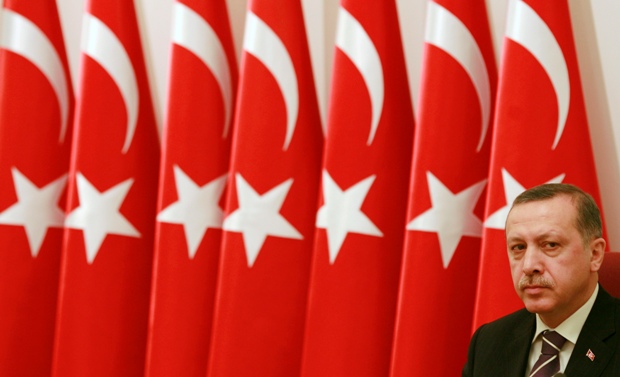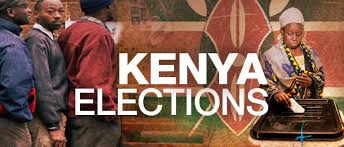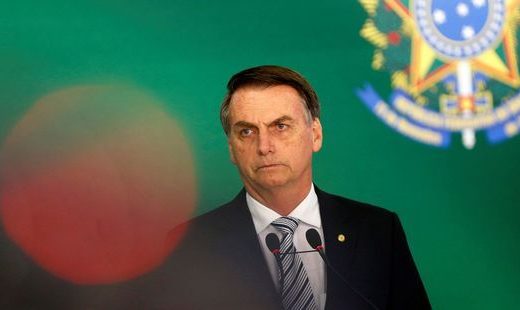Brazil’s 2018 presidential race has officially begun. From now on, candidates are allowed to distribute advertising material and openly ask for votes. We have separated the main proposals laid out by the five candidates with the best polling numbers – as the next president will most likely be one of them. We focused on four main issues: the economic crisis, the public security crisis, health care, and education.
Not all candidates have clear proposals on how to deal with Brazil’s most pressing issues. So, if something sounds vague, it’s because the candidate hasn’t explained how he/she will achieve what is being promised. The candidates are presented in order of their performance in the most recent opinion poll. As the survey excludes former President Lula, the Workers’ Party is listed as the fifth force.
Jair Bolsonaro
Jair Bolsonaro
Brazil’s fiscal crisis
End the fiscal deficit in 2019, turning it into a surplus by 2020;
Austerity measures and flexible currency policies;
Keep Ilan Goldfajn as the Central Bank president;
Tax cuts, made possible by attracting “new money” to Brazil, through mining projects, tourism, and increasing public security;
Slash public debt by 20 percent through privatizations, divestments, and concessions;
Simplify and unify federal taxes.
Public security
Reduce the age of criminal responsibility from 18 to 16 years old;
End gun control laws, allowing every citizen to bear arms – including assault rifles for landowners;
Legally protect law enforcement agents who kill people during police operations;
End mechanisms to avoid unnecessary arrests. For Mr. Bolsonaro, prison overcrowding is a problem for criminals. Also ending progressive sentences and furlough policies;
End the monopoly detained by Brazilian company Taurus in gun manufacturing, opening the market to foreign players.
Classify occupations of rural properties or buildings as “acts of terrorism”;
Reinforce the role of the Armed Forces in the fight against organized crime.
Healthcare
Creating a Unified Patient Record;
“Freeing” the Cuban doctors who are working in remote areas under the More Doctors Program (these doctors are not paid directly, but rather by an opaque network of transactions mediated by the Cuban government). However, Mr. Bolsonaro is not clear whether he will shut down the program;
Establishing a dentistry program for pregnant women, which would “reduce premature births”;
Mr. Bolsonaro says that if the economy is doing well, fewer people will get ill.
Education
Distance learning programs from preschool to university;
Introduce military discipline in schools, and increase the presence of military schools in the country (by 2020, there would be one in each state capital) and naming a general as Minister of Education;
Forbid teachers from expressing political opinions in class;
Invest in research at the university level;
Change the curriculum and abolish the controversial automatic approval system (which, to avoid school evasion, allows students to attend the next grade even without the grades or basic skills for it);
Mr. Bolsonaro says he’s “open to suggestions” on the issue.
Marina Silva
Marina Silva
Brazil’s fiscal crisis
Unify five federal taxes (social security taxes, value-added taxes, and taxes over goods and services) into one only tax: the Tax on Goods and Services (IBS);
Tax profits and dividends, simultaneously reducing income taxes over companies.
Raise taxes on inheritances above a threshold;
Opposing the federal spending cap;
Tax exemptions for basic products as a cash-transfer-like policy;
Cut down tax exemptions for corporations.
Public security
Ms. Silva is against reducing the age of legal responsibility and against reducing gun control laws;
Create a Unified Public Security System to integrate police forces;
Increase salaries for law enforcement agents and provide them with continuous training;
Create measures to allow petty criminals to serve alternative punishments other than jail time.
Healthcare
Mapping the system’s “black holes” to create a regionalized plan for distributing federal resources;
Enhancing the generic medication program (non-branded versions of brand-name drugs with expired patents that have the same active principle, the same concentration, and the same dosage), which account for more than 25 percent of all pharmaceutical sales in the country.
Stimulating healthy eating habits, including vegetarianism;
Dividing the country into 400 “health care districts” to facilitate management.
Education
Almost doubling the number of daycare centers and universalizing infant education;
Increase salaries for teachers and provide them with continuous training;
Revoke the current administration’s education reform;
Encourage schools to operate both in the morning and afternoon (Ms. Silva, however, offers no details on how to do so);
Maintain racial and income quotas for university students in state-owned institutions.
Geraldo Alckmin
Geraldo Alckmin
Brazil’s fiscal crisis
Reinforce the federal spending cap;
Eliminate the public deficit within two years;
Unify five federal taxes (social security taxes, value-added taxes, and taxes over goods and services) into one only tax: the Value-Added Tax (IVA);
Austerity measures: public spending cuts, but no tax hikes;
Reduce income taxes on corporations to stimulate investments.
Public security
Less gun control for rural areas;
Harsher penalties for youth offenders who commit heinous crimes, raising the maximum penalty from three to eight years;
Create an intelligence agency to fight drug trafficking;
Mr. Alckmin is in favor of the federal intervention in Rio de Janeiro;
National goals for reducing crime rates – curbing homicide rates to a maximum of 20 per 100,000 inhabitants;
Create a National Guard, a sort of militarized federal police force.
Healthcare
Charging health insurance companies for treatments made by their customers in the public healthcare system;
Creating a Unified Database for Patients;
Enhancing basic family healthcare programs (Mr. Alckmin gives no details about how to do so).
Education
Improve Brazil’s scores on international assessment exams, such as Pisa, by 50 points, which would generate a 1 percent GDP growth;
Reform the high school system;
Alphabetization for all children by 2027;
Strengthen technical and technological programs;
Install meritocracy in the public educational system, paying bonuses for teachers whose students score better in exams.
Ciro Gomes
Ciro Gomes
Brazil’s fiscal crisis
Immediately revoke the federal spending cap;
Create the Value-Added Tax (IVA) at a “tiny” rate, combined with taxes over profits and dividends and a federal tax on inheritance;
Slash tax exemptions for corporations;
Set a cap for the money used to pay for interest on public debt. Mr. Gomes wants to “change the profile of Brazil’s debt,” regaining the markets’ trust.
Use USD 200 billion of Brazil’s international reserves to pay for 9 percent of the country’s internal debt.
Use the National Development Bank to stimulate investments, especially by the industry sector.
Use state-owned banks to actively reduce real interest rates in Brazil;
Public security
Mr. Gomes is against reducing the age of legal responsibility and against reducing gun control laws;
Create a National Public Security System, integrating police forces from municipal, state, and federal levels;
Federalize drug-related investigations, tackling money laundering strategies from drug cartels;
Invest in technology to monitor gangs;
Create a Border Police, separated from the Federal Police, to prevent drugs and weapons from entering Brazil.
Healthcare
Joint-effort consultations with specialty doctors, enhancing elective surgeries paid for by the public healthcare system;
While Mr. Gomes is a pro-choice politician, he avoids talking about the topic of abortions, as it could cost him millions of votes;
Creating electronic patient record databases;
Giving bonuses to hospitals that are well-evaluated for their services. A national customer relations system would be created;
Education
Expand full-time education, with children studying in the mornings and afternoons;
Create a fund to finance education policies;
Universalize schooling for all teens and children under 17 years old;
Keep public universities free and enhance student loan policies for those who attend private institutions;
Increase the number of daycare centers (no detail on how many more, or how to do so).
Workers’ Party
Lula and Fernando Haddad
Brazil’s fiscal crisis
Revoke the federal spending cap;
Income tax exemptions for people earning less than BRL 4,770 – increasing taxes on the “super-rich”;
Make fuel taxes a municipal tax to pay for transport projects;
Overtax banks that raise interest rates;
Promote a fiscal reform to simplify bureaucracy;
Regulate the media’s economic environment to avoid property concentration;
Progressive taxes on inheritance;
Use state-owned banks to encourage investment;
Strengthen Petrobras, reinforcing local content policies.
Public security in Brazil
Federalize drug-related investigations, appointing police officers and judges to deal with the issue exclusively;
Tackle the drug crisis as a public health issue, with assistance to drug abusers and prevention programs at schools;
Create a National Plan to Reduce Homicides;
Reinforce the tracking of guns and ammunition;
Change the penal code to allow petty criminals to serve alternative punishments.
Healthcare in Brazil
Create a Unified Patient Record;
Put forward policies against the Aedes aegypti mosquito, which transmits dengue fever and the Zika virus, among other diseases;
Increase the federal government’s responsibility for medium-complexity procedures;
Improve the regulation of third-sector organizations in the healthcare sector;
Joint-effort consultations and surgeries.
Education for Brazilians
Revoke Michel Temer’s education reform;
Defend a movement called “School with Science” in opposition to Mr. Bolsonaro’s “School without Politics” proposal;
Increase the number of places in high schools;
Universalize schooling for all teens and children under 17 years old;
Reform the careers of teachers.








